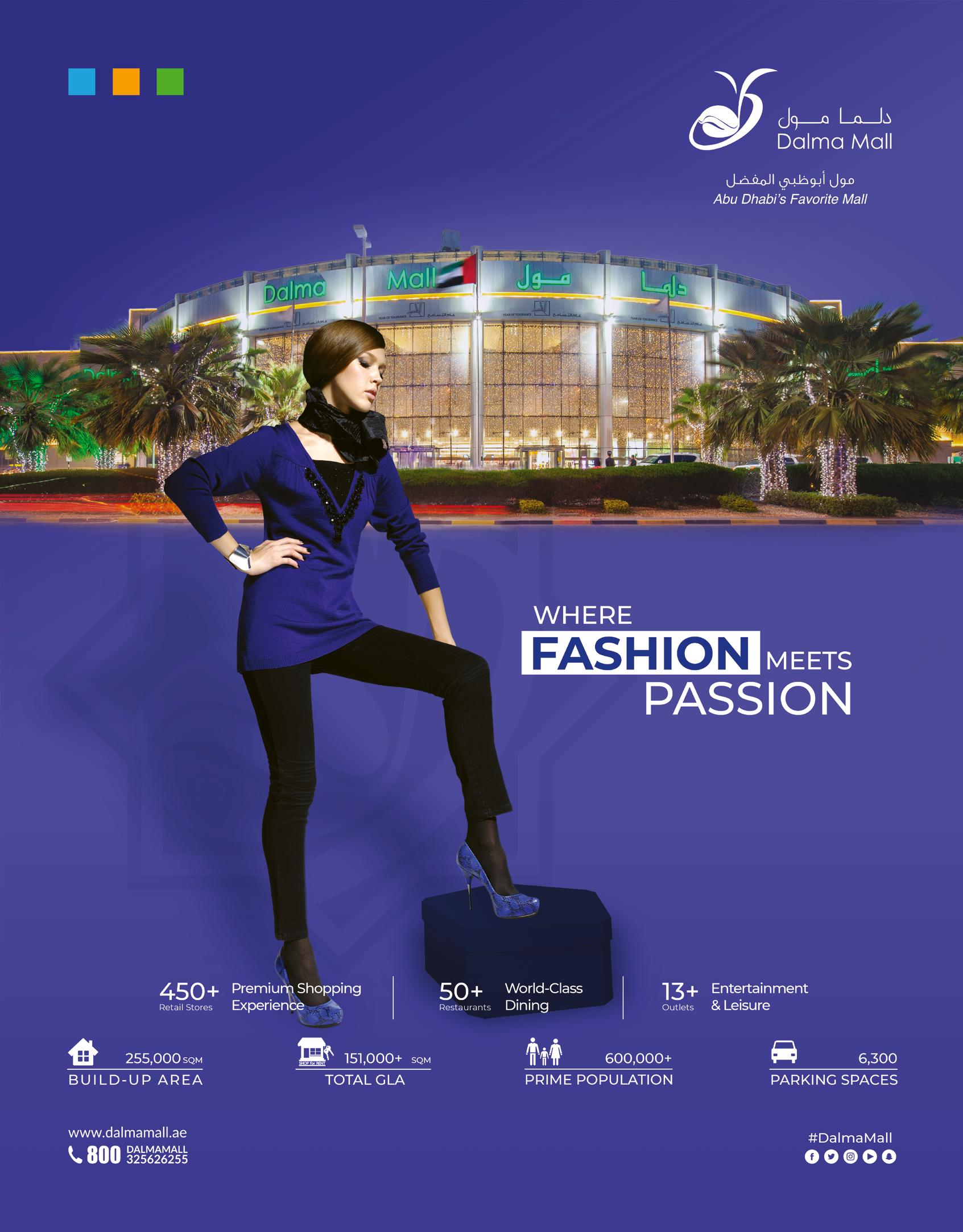
30 minute read
SPECIAL FEATURE
The Albex Group: Retail Revolution Defined
It is guaranteed that 2020 will go down in history as one of the most challenging years the world has ever seen, and given that we’re only halfway through the year, it is clear the retail industry has enormous challenges ahead. One message that has been driven home across all business sectors, but particularly in retail, is that we must adapt and be flexible in order to meet the changing needs of today’s consumer.
Advertisement
Our vision to change, to pivot and to develop as a brand, started long before anyone had heard of coronavirus, social distancing and WFH. In 2019, we realized it was time for a fresh approach and time to use what we do consistently well as a platform to offer more to the industry. We are proud that we are the go-to brand when retailers require mannequins and hangers, but we also know that we understand, know and love retail, and can offer the industry so much more. This year, we became The Albex Group, a business with five distinct verticals: Retail Solutions, Albex 360, Retail Consultancy, Retail Academy and Albex HR.
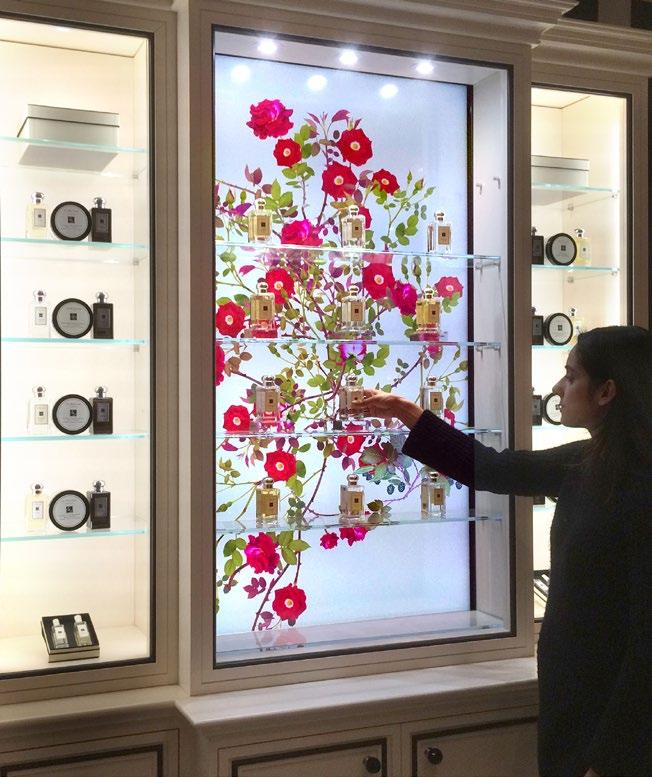
Julieta Almanza Marketing Manager, The Albex Group
There are two choices in life: to keep doing what you do and stay where you are or to innovate and get to the place where you want to be.
Our mission to offer the best solutions and always deliver the highest quality remains the same, but today, we are doing this by integrating sustainability and technology into our offering. We are working with innovative partners who, like us, have an innate passion for the retail industry and understand its intricacies as we move forward to cater to our Gen Z shoppers right through to the baby boomers.
Albex 360: Innovative Technology to Support the New Wave of Retail
Our technology division is working with partners to elevate our offering in the region’s industry. Perch provides interactive retail displays that attract the attention of customers and have the ability to track interactions by detecting the number of times a product is lifted from a shelf. An award-winning organization, Perch has worked with international brands such as Jo Malone and Macy’s, and their product is the ideal way for retailers to identify bestsellers and measure the performance of specific lines.
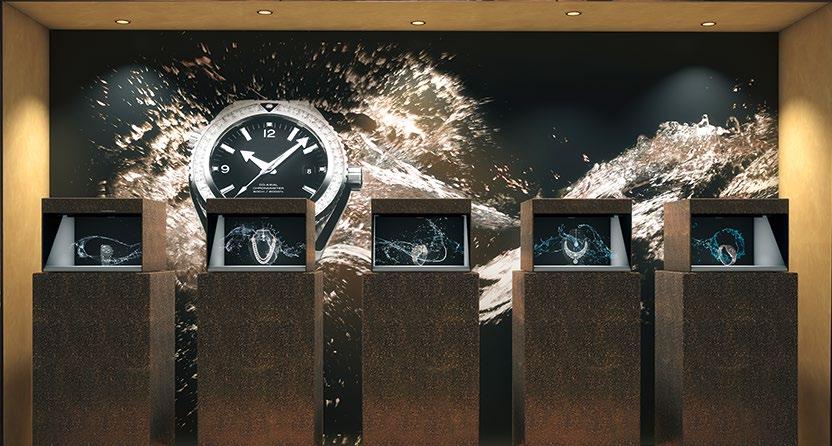
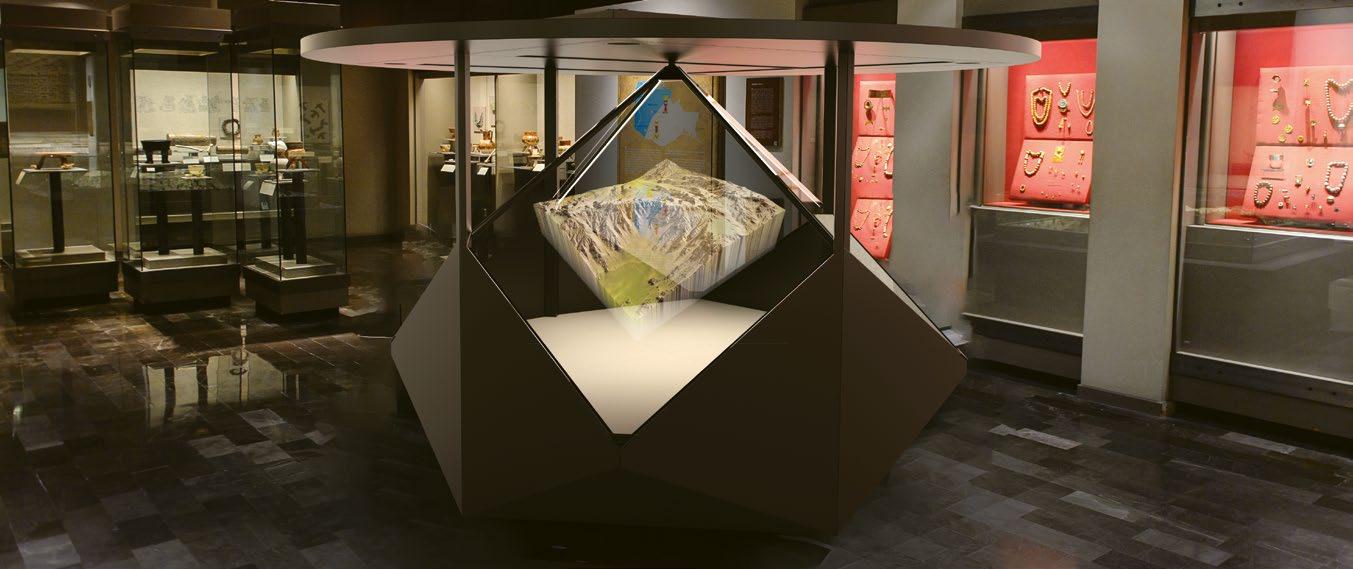
H-Ventures and VSBLTY have the best facial recognition technology integration in the business: a magic mirror that is capable of counting customers, detecting their gender, age and expressions, and delivering retailers metrics which can help them create more refined campaigns. The mirror can be installed in any kind of store, from fashion showrooms to supermarkets.
For the most sophisticated hologram technology on offer, The Albex Group works with Realfiction, which transforms retail windows. The content can be fully personalized with a brand’s graphic elements and it’s been proven as one of the most attractive displays available on the market, especially during exhibitions, trade shows or in pop-up stores. Guaranteed window stand-out.
Meaningful Partnerships Offering Tangible Retail Solutions
At our Retail Solutions business, we form partnerships with companies we trust and only with those that share our vision and values. Mainetti are the best manufacturers of hangers in the world; they are a long-time partner of Albex and always deliver products designed to last, thanks to their high-quality standards.
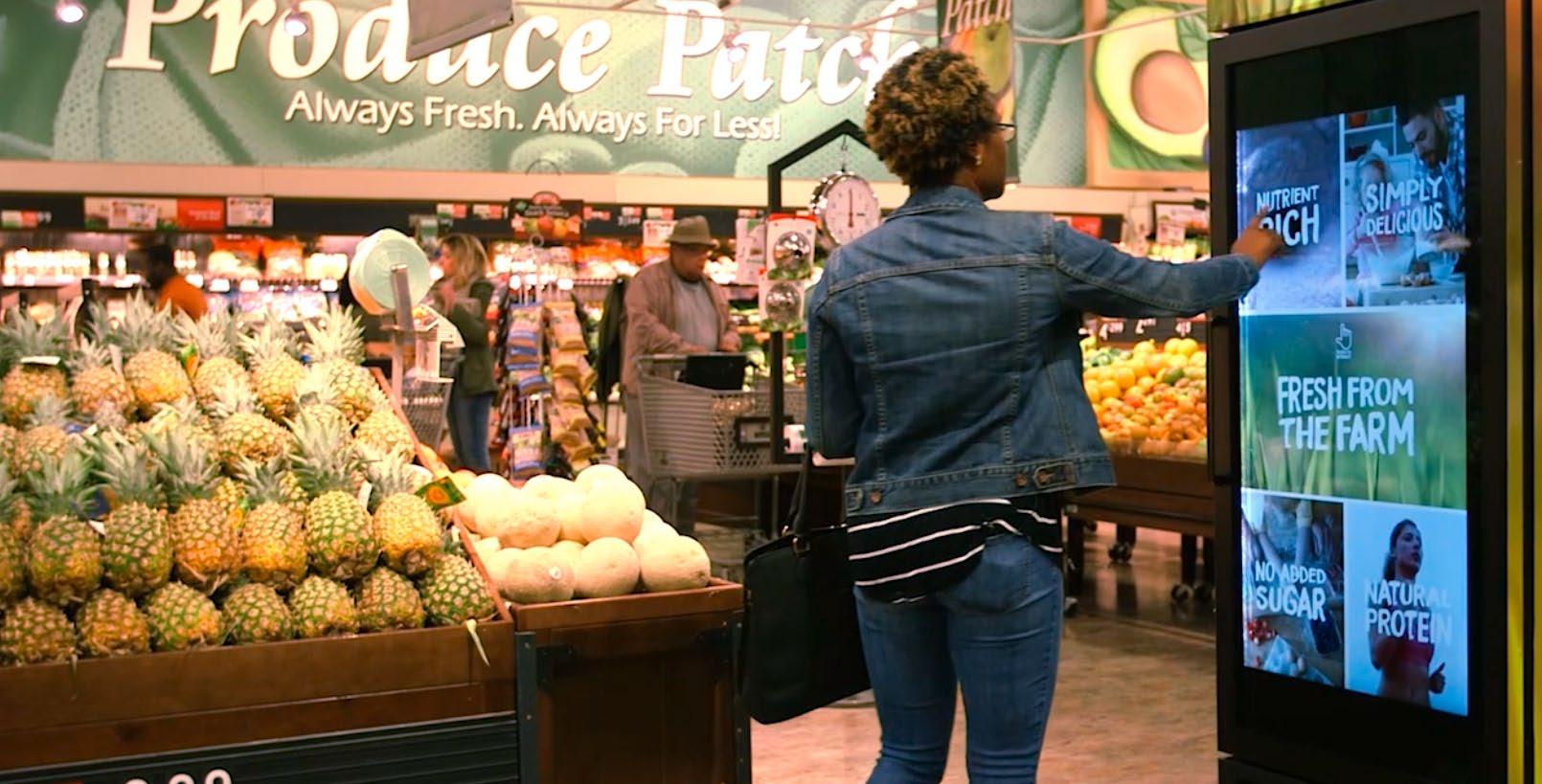
For smart paper bags which help our customers reduce logistics costs, we look no further than Flatbag which has created a patented paper bag at an affordable price. Their products are sustainable, made of 100% natural materials, are resistant and can be reused.
Albex is synonymous with mannequins; our partner Bonaveri has helped us solidify our positioning in the Middle East retail sector because they are leaders in mannequin manufacturing. They create BPlast™ mannequins that deliver a more sustainable option to the fashion industry. Their different collections adapt to the brand style in order to position it exactly the right way.
The last year has been transformative for The Albex Group and we are now ready to open our doors to offer personalized solutions to all types of customers. We encourage you to visit our showroom in Dubai, where all social distancing and mandatory health checks are in place. Talk to us about your needs and we’ll create the solutions.
The Albex Group, 501 Prime Tower, Business Bay, Dubai, UAE www.thealbexgroup.com
Impact of COVID-19: How Nakheel Malls is Responding
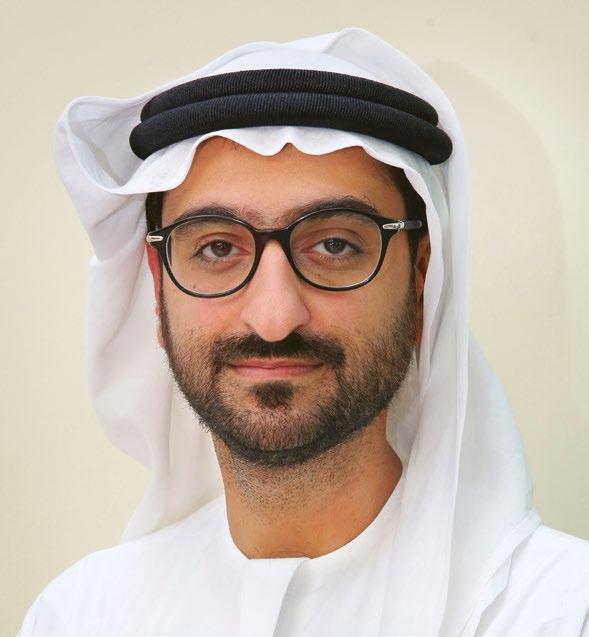
On 23 March the announcement that malls would be closed until further notice, stood as a decision unprecedented in Dubai retail history. The 12 malls reacted quickly and were closed for operations.
The priority at this time was first and foremost the customers’, retailers’ and staff health and safety. The malls were a major food supply chain for customers, with access to supermarkets and pharmacies critical for Dubai residents. Therefore, Nakheel Malls’ operations needed to uphold and manage a high level of hygiene. New operational plans were developed faster than ever before, implementing deep sanitization measures, increasing cleaning staff, security and customer service, thermal scanning, safety awareness campaigns and mall communication in all 12 malls. Nakheel Malls worked closely with tenants, supermarket anchortenants and pharmacies to ensure efficient and effective supply to trade areas and communities.
During this time, Nakheel Malls also worked closely with stakeholders and partners to look beyond the region for consultation and insights. For example, we looked towards China to see how the market reacted and adapted. We consulted with partners across the GCC to how Middle-East customers would be impacted and, more importantly, respond.
Moreover, ‘the tenant – landlord’ relationship was also critical. Retailers had heightened concern about their business feasibility,
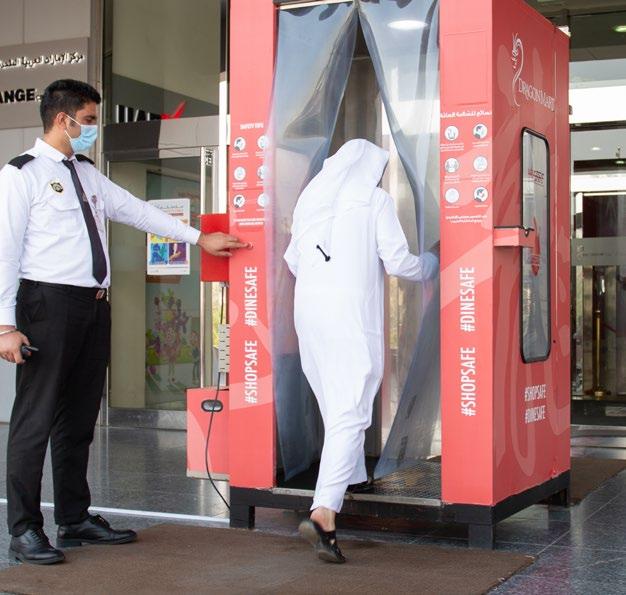
Omar Khoory Managing Director, Nakheel Malls
especially some small to medium businesses who were unsure of their income and the future. Nakheel Malls committed to showing support. In line with the economic stimulus launched under the direction of H.H. Sheikh Mohammed bin Rashid Al Maktoum, Vice President and Prime Minister of the UAE and Ruler of Dubai, we launched a rent relief package to support the retail and hospitality partners operating within its malls and destinations as a critical element of its support for its business partners. The initiative, announced in March when Dubai’s malls were closed, came into effect when they reopened, providing respite for tenants facing economic challenges during the unprecedented situation.
Nakheel Malls was one of the first groups to give rental relief* with a comprehensive support package issued to its tenants. They also waived administration charges across various services. It was important to communicate at the right time and to make decisions quickly to impact the market.
At Nakheel Malls, the important lesson learnt during this time is the speed at which one has to react. Business decisions
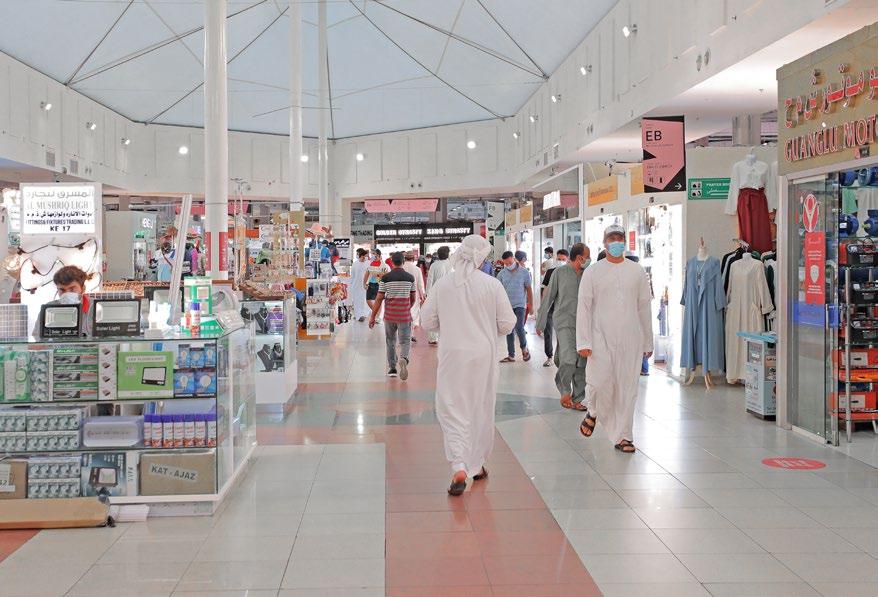
needed to be made quickly and communicated in the right channels at the right time.
Conversations with retailers continue daily. Nakheel Malls is also open to ideas and initiatives from tenants that will support their performance and improve business during this recovery period. They continue to see this as one of the important pillars to their success.
Business innovation was another direct effect of mall closure. During this period insights showed that customers propensity demanded food and products from our malls, however some were concerned about hygiene, safety and access. Therefore we launched ‘Call, Come, Collect’* to support our retailers and in direct response to consumer demand. When malls were operating at 30% capacity and online orders were taking longer than usual, this quick, convenient facility was a good solution for customers who wanted instant access to shops and restaurants. This initiative also came at a time when we needed to support local businesses.
Customers can call and order their food or product, come to the mall and collect it from a safe collection point, connecting the retailer and the customer in a safe and convenient way. This service has now been integrated into our malls’ signature services. Customers can now continue to shop for a wide range of items from some of the biggest retail and entertainment destinations, safe in the knowledge that the whole process is efficient, contactless and hygienic.
This is just one of the initiatives launched during this period however more important services are in the pipeline for the future which will be based on learnings and insights uncovered during COVID-19.
After Nakheel Malls reopened, our insights showed that customer shopping habits had changed. Certain categories and brands’ priority positioning had also changed. For example, the Home and Electronics categories saw an increase in demand as consumers were spending more time at home.
Monitoring performance and customer behavior across the Nakheel Malls portfolio has been vital. Whilst Dragon Mart, which is connected to the Chinese wholesale industry, was one of the first malls affected by the pandemic, it was also the quickest to bounce back, seeing a footfall return to 70% capacity when compared to 2019. This continues to increase.
This shows that customers still demand a unique physical store experience especially at malls that show intrinsic value. Dragon
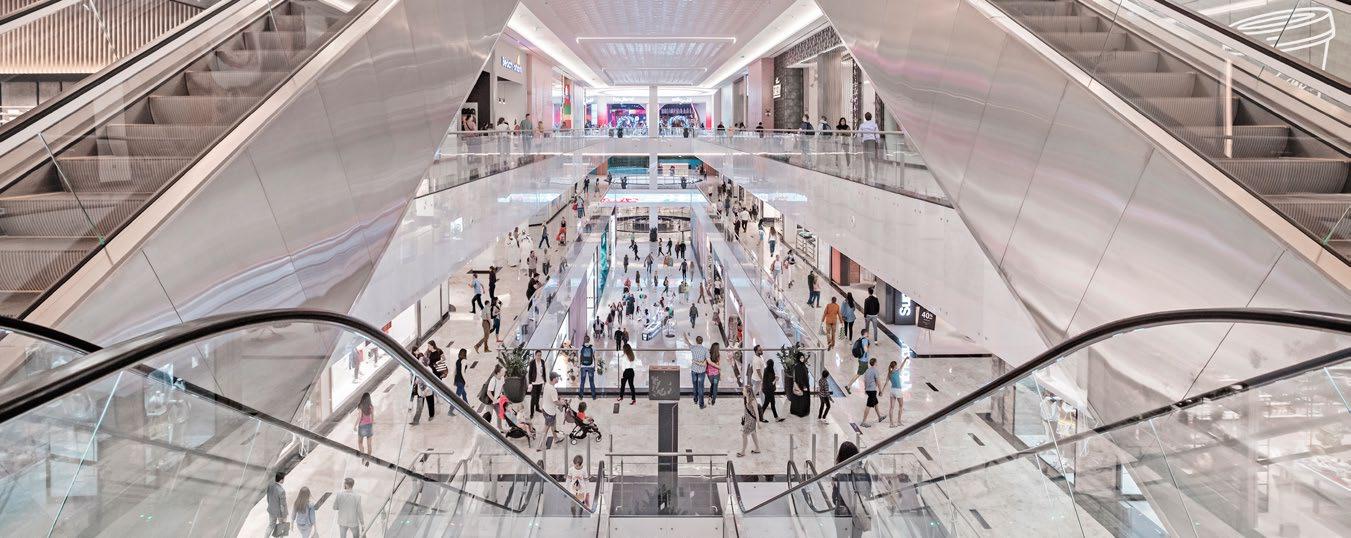
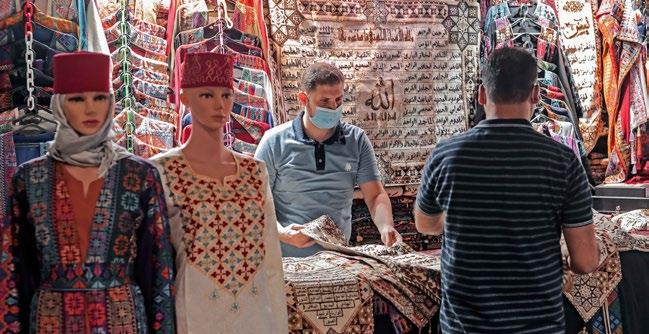
Mart offers wholesale prices and bulk buying options which is enticing to customers looking to conserve their disposable income.
Nakheel Malls continues to drive momentum towards the future of the business. Circle Mall, a 530,000 sqft (49,000 sqm) mall located in Jumeirah Village Circle is on track and will launch in 2021 and Al Khail Mall is also progressing well. The Pointe at the Palm Jumeirah will launch the Palm Fountain in Q3 this year which will be a first of its kind attraction in the region. Finally, The View at The Palm, the first viewing deck and a multi-sensory exhibition, will be the first time Dubai residents and tourists will see the Palm Jumeirah from 240m up in the sky.
Nakheel Malls is optimistic about Dubai’s retail future and are fully focused and committed to continuing working towards the road to recovery.
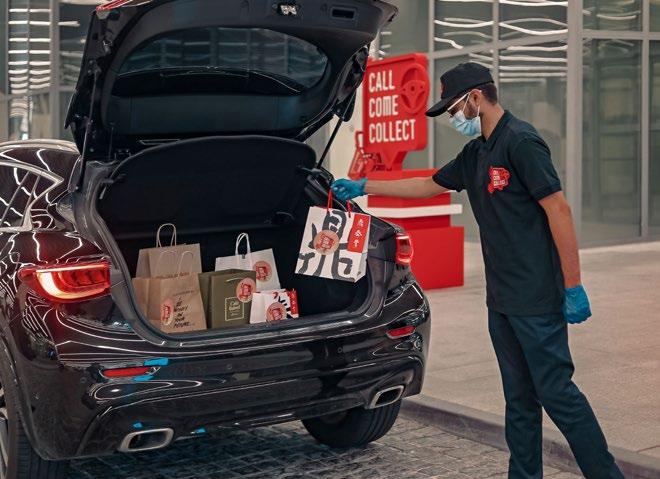
*On 29 April, Nakheel announced a Dhs230m economic relief package for its tenants in response to the Covid-19 outbreak. ** On 27 May, Nakheel Malls launched a contactless pick-up service at Nakheel Mall, The Pointe and Ibn Battuta Mall, giving more customers instant access to over 700 retailers and restaurants while social distancing. The service operates daily from 12 noon to 9 pm. Customers place their order by phoning the shop or restaurant directly before collecting their items from a designated drive-through pick-up zone.
Zero 6 Mall: The One-Stop Shop for Retail, Entertainment, and Leisure in Sharjah
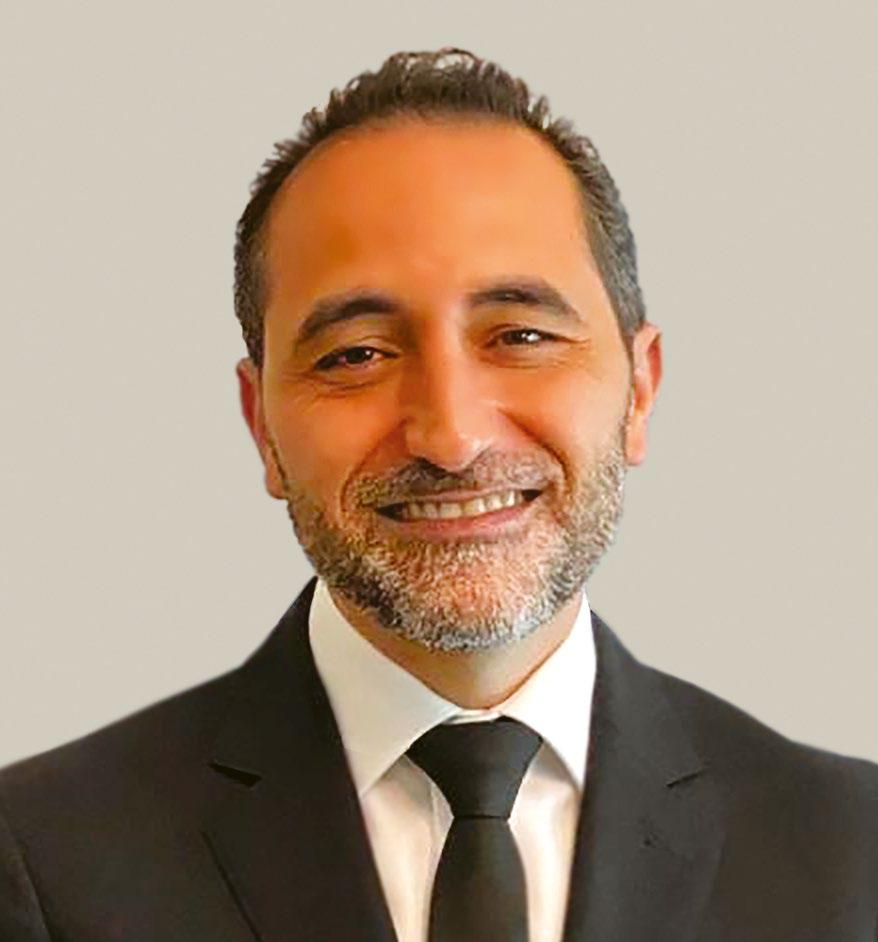
With such a diverse population, understanding consumer behaviour in the UAE is vital for retail destinations to thrive and satisfy their customers’ needs. With 65% of UAE shoppers expecting brands to connect with them personally and treat them as individuals, customer service is crucial. The UAE is a ready-made market for luxury brands, and consumers want to receive excellent service and feel personally valued by brands. In fact, 43% of Emirati shoppers are encouraged to spend more when they have a personal shopping advisor. Consumers in the UAE have grown accustomed to an outstanding physical shopping experience, enjoying some of the world’s most iconic malls. Zero 6, Sharjah’s number one shopping and entertainment destination, is one of those malls.
Zero 6 offers families in the emirate a plethora of entertainment, leisure, shopping, and fitness activities all under one roof. The mall recently reopened its doors to shoppers following the COVID-19 pandemic, with a number of measures in place to ensure the safety of all its guests and employees.
Jamal Al Shawish
Chief Sales & Leasing Officer, Alef Group
Measures include regular sterilisation of the premises, and ensuring guests wear masks and gloves and undergo thermal scanning before entering the mall. Other precautionary measures include a limited capacity of shoppers (60%), social distancing
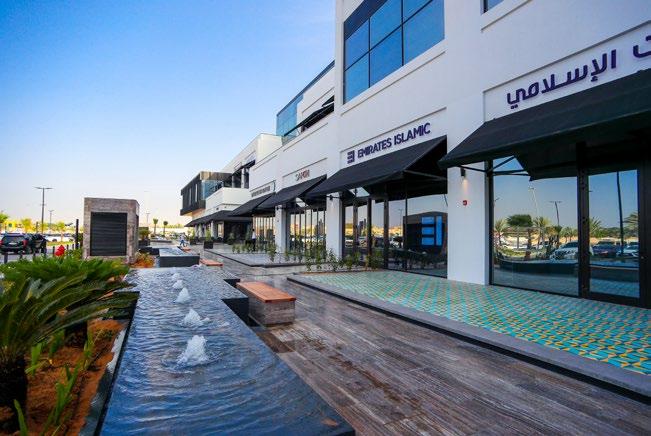
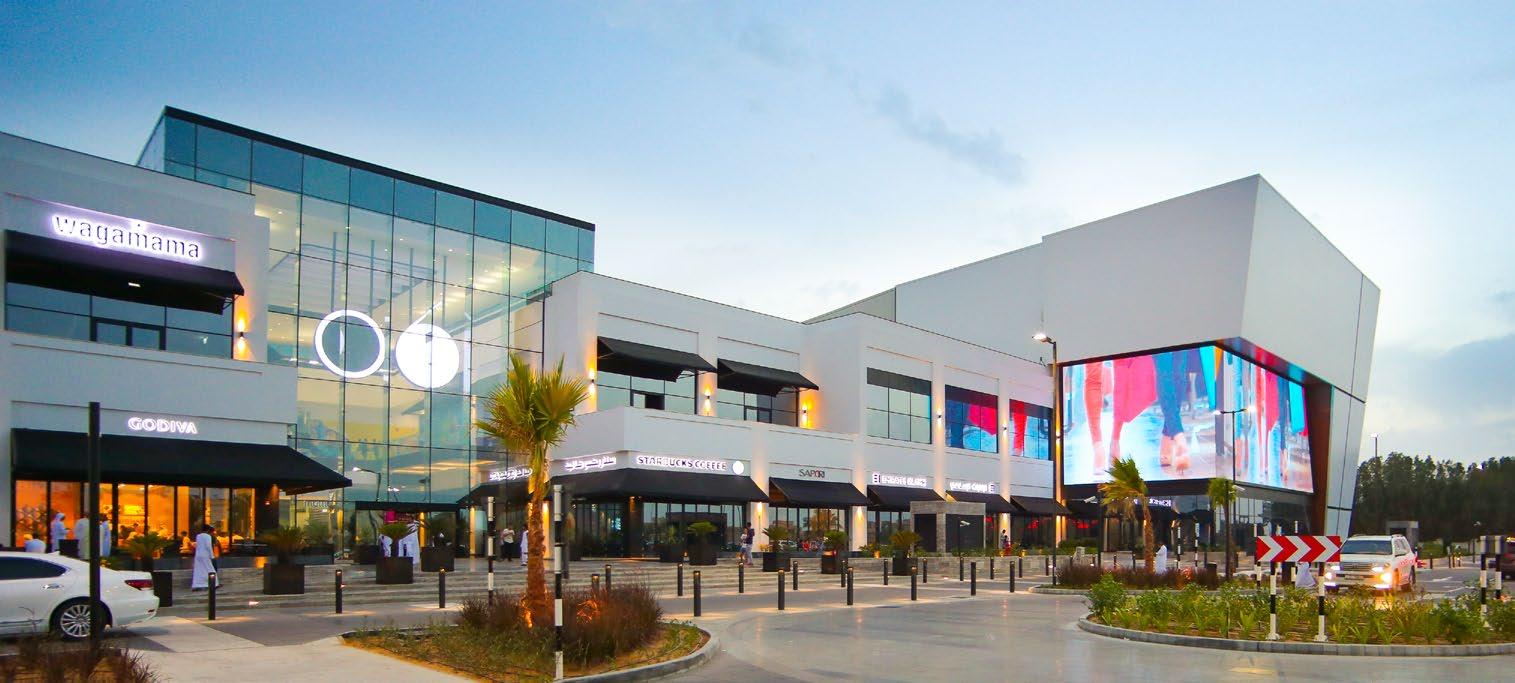
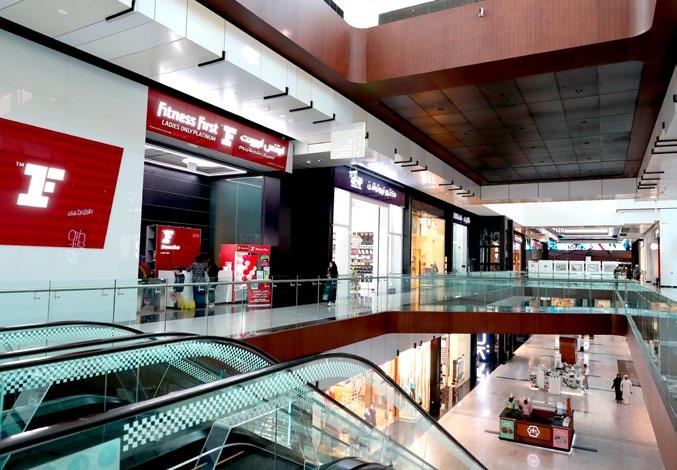
reminders in place, and disinfection operations conducted across the mall including entrances, exits, elevators, and stairs. Several awareness campaigns are also being run for employees, with the intent of educating them on preventative measures to be taken to combat the spread of the virus.
Alef Group, Zero 6’s developers, also recently extended substantial financial support to retailers located within the mall, providing exemptions of up to AED 10 million. The financing covers the value of this year’s rent for tenants whose business has been affected by the current situation. Jamal Al Shawish, Chief Sales & Leasing Officer, Zero 6, explained the initiative behind the financial support, saying “the discount for retail tenants is a way of lending support during an unprecedented time for merchants. Zero 6 Mall has witnessed a decrease in the number of visitors following the authorities’ instructions to the public to stay home, and consequently a number of businesses have suffered. The support demonstrates Alef and Zero 6’s dedication to corporate social responsibility and supporting the domestic economy within the emirate of Sharjah.” Besides the financial support extended, tenants of Zero 6 received additional support through Zero 6’s online digital platforms, enabling them to conveniently receive deliveries of their goods and keep the business running.
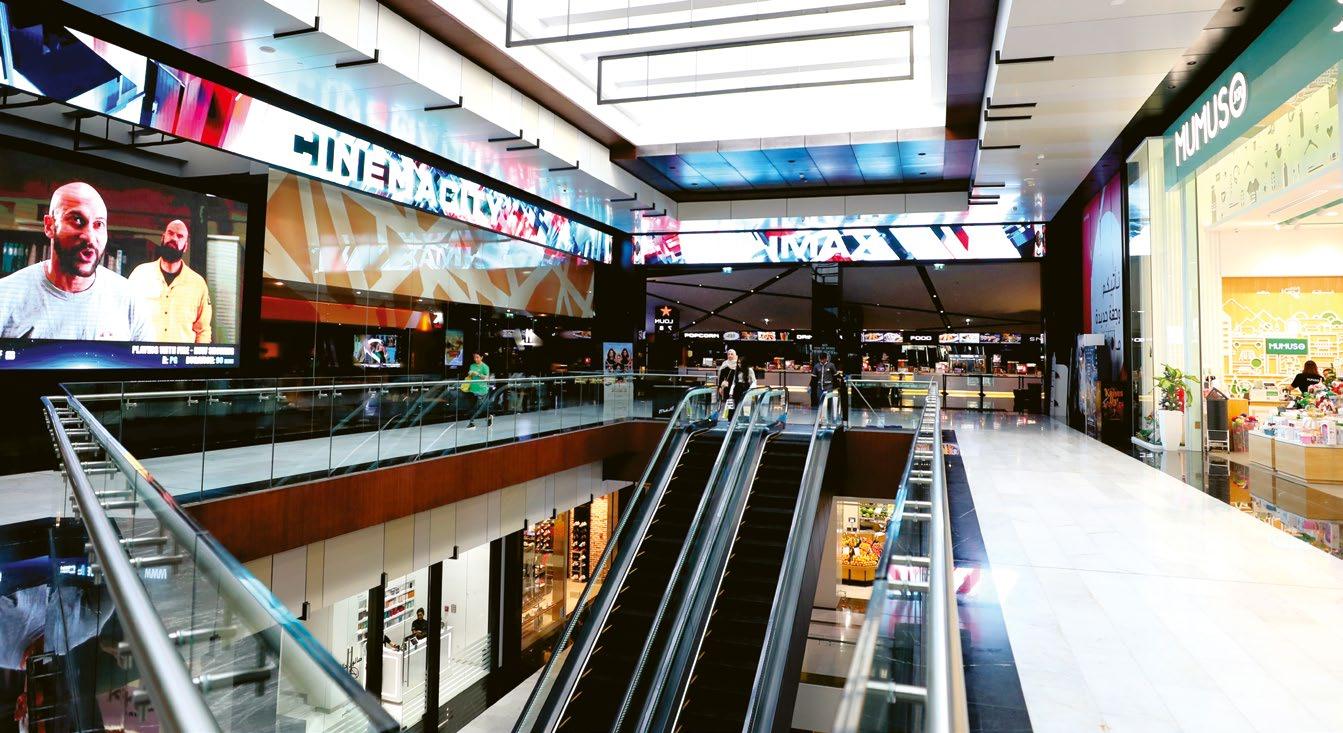
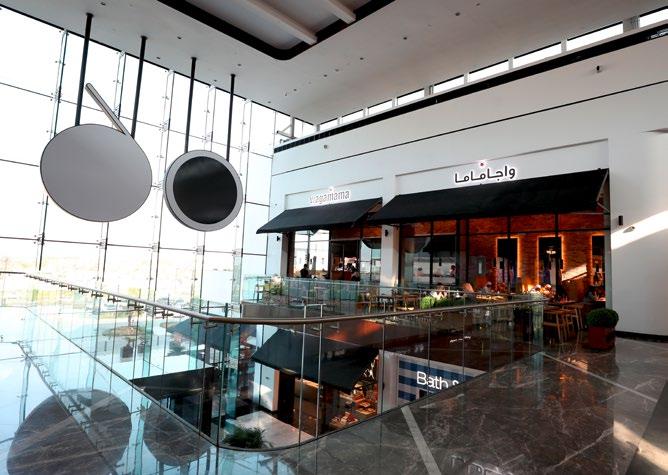
Zero 6, whose name is inspired by Sharjah’s telephone code, provides visitors a family-friendly destination, offering a diverse selection of retail shops, dining outlets, and leisure attractions including Cinema City’s 8 screen cineplex, home to the UAE’s biggest IMAX screen. The multiplex theatre is fitted with luxurious seating and offers movie-goers an in-theatre dining service.
Those looking for some retail therapy can enjoy browsing a range of stores with something suited for everyone, and can stop for a bite to eat, choosing from restaurants such as Japanese favourite Wagamama’s, acclaimed Parisian café Angelina, coffee haven Starbucks, and organic eatery Burger Boutique. There’s always room for dessert, and that sweet tooth can be satisfied at Godiva, one of the world’s most sought-after chocolatiers.
Of course, a day at the mall can be a perfect opportunity to let the kids blow off some steam, and Zero 6’s play centre, Fun Block, provides a space for just that. With a medley of climbing walls and slides, children are able to play in a safe environment whilst mum and dad catch up on their shopping.
Zero 6 also brings mall goers a thoughtfully chosen range of wellbeing services: Fitness First for ladies which features an indoor swimming pool, Prime Medical Centre, and award-winning NStyle Beauty Lounge to name a few. The services on offer promise to meet the needs of health and fitness conscious consumers.
Evolving Dynamics of Shopping Malls

The Shopping Mall Industry ever since its inception has been evolving at a wild stride with the changing dynamics of retail, the cultural landscape of the concerned region and the change in consumer behaviour from time to time. The three core functionaries of shopping mall are Leasing, Marketing and Operations. All three have been periodically upgrading themselves to match the changing dynamics of the industry.
In regards to leasing, the most susceptible aspects are the rental terms, merchant mix, category occupancy percentages, etc. In this region itself, we have seen the rental trends doing the highs and lows depending on the malls' performance and potential of the location. The attitude is altering from “Take it or Leave it” to a more “You Win, I Win” deal. Post-Covid scenario is going to be even more challenging for all the stakeholders as there are no set formulas to solve this equation which has innumerable variables involved. It is easy to observe that occupancy of certain categories is diminishing and certain others advancing. We have detected a spike in F&B retail from 10% going up to even 25% of GLA which is now again down-trending to 15%. Entertainment has leaped up to 35% at certain destinations. The 3 F’s (Fun, Film and Food) are the dominating categories now as compared to the 4th F (Fashion) which used to be the key factor for any malls. With the changing patterns of consumer behaviour, and the retail aspects and influx of Omni-channels, we will see highly fluctuating dynamics of merchant mix in the near future.
There has been a paradigm shift in the Mall Marketing attributes in its objectives, its form and its mediums. The main transferral has been in the form itself, from passing information and announcements to engaging content. The mediums have moved from newspapers and radio to a very pro-social media based advertising. The need of the hour is to wrap any information and
Juby Jose
Head of Marketing, Dalma Mall
announcement with emotion and empathy, to reach not just the ears but the mind of audiences. We have also seen that rather than entertaining events, the industry is moving towards interactive and engaging events. Gamification has now turned into the new mantra for marketers which definitely has lower investments, highly engaging audiences, participatory collaboration and longstanding brand recall as compared to a dance or puppet show. Social media is Optimus Prime which is transforming the entire strategy, language and behaviour of marketing. At Dalma Mall, we believe in understanding the audience, formulate campaigns accordingly and be trendsetters in doing so.
Even on the operational lines change of dynamics has been phenomenal where value is now given to the comfort and experience of the mall as compared to just the logistics. There have been changes right from the architecture to the base designs of malls in creating the right ambience catering to all the five senses of the consumer. High-rise storefronts, store designs, enhanced lighting, decorative architecture, photo opportunities, mall music, washroom ambience to even waste and energy management have now taken a lead role in mall operations.
All said and done, these changing landscapes and continuous evolution are the very essence of our shopping mall Industry which gives it a life form that remains alive and interesting for all its stakeholders.

The Future of Marketing: Lessons Learnt & the Way Forward
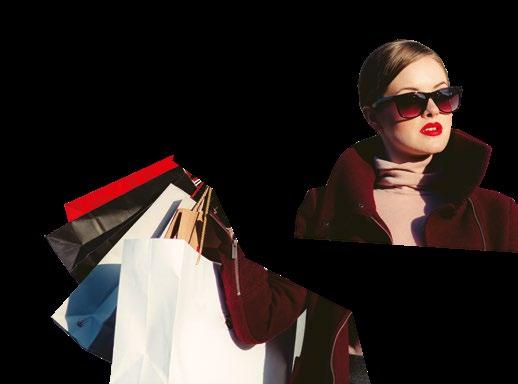
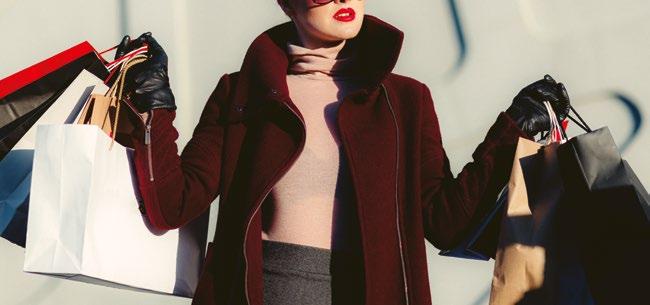
With coronavirus impacting businesses in a catastrophic way, the first reaction of most companies is to halt all marketing, advertising and PR in an effort to curtail spending. The biggest misconception that brands have, is that consumers don’t want to see advertising during a crisis period. However, this isn’t the case; a global survey by Kantar, of more than 35,000 consumers during COVID-19, revealed that only 8% of respondents thought brands should stop advertising, while 75% agreed that brands should not exploit the situation.
Consumers absolutely want to hear from brands – but not if brands are tone-deaf to the implications of the coronavirus pandemic or operating from a place of self-promotion. While one size doesn’t fit all, there are some key lessons that we have learned during this pandemic that will help us navigate the ‘new normal’.
Firstly, brands should focus on how they want to be remembered once the coronavirus crisis is over. Fostering trust, relevance and authenticity are critical and a good way to do this is through ‘socially conscious’ messaging, where brands can share inspiring stories about how they’re contributing to mitigating the crisis.

Zaib Shadani Founder & MD, Shadani Consulting and The Comms Room

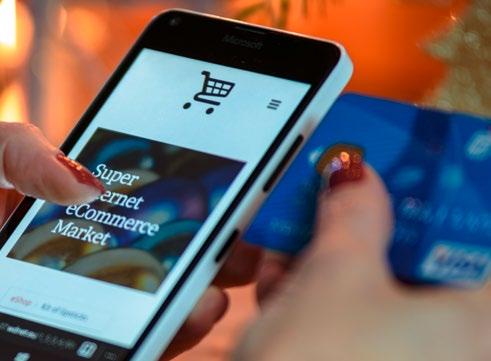
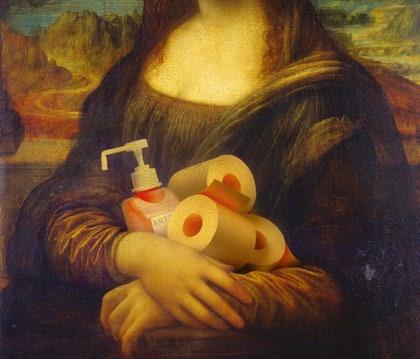
Consumers want to know that a company’s brand values align with their own and that a brand will step up and stand with them in times of crisis.
Secondly, brands need to look at alternative products or services that can be offered for free or at a reduced rate. The coronavirus has caused a major economic downturn, that is expected to last till early 2021, and offering cash strapped customers alternate options will go a long way in establishing customer loyalty. An example of this can be seen in videoconferencing company Zoom, who are offering a combination of limited period, free or upgraded access to their services.
Lastly, with social distancing still in effect, everyone is now going online to get information, make purchases, spend their spare time, etc. The quicker brands adapt to the online marketplace the better. A great example of this is The Dubai Mall, which announced its partnership with e-commerce marketplace noon.com, whereby all their brick and mortar retailers will have the option to opt-into being part of the virtual store.
Brands that have an eye on the future and want to successfully market themselves in a post COVID-19 era, will have to implement key learnings that are cognizant of ‘socially conscious’ marketing, alternative options for cash-strapped customers and open to online marketplaces.
Welcome to the New Wellness Environment Programme
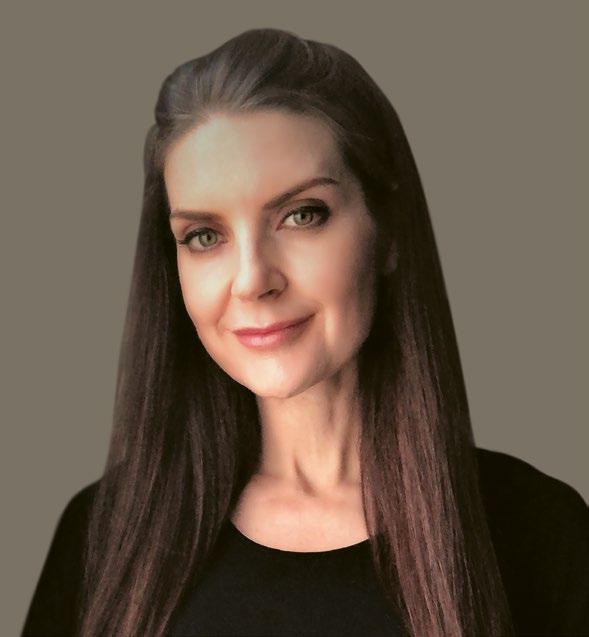
The pandemic has caused us to pause the present and forced us to live in the here and now. As we move into the second half of the year, governments are easing restrictions and life is starting to come back to something we collectively understand as ‘the new normal’.
Communities are adapting to a different mantra of #StrongerTogether and rallying to support each other, while businesses are adapting by becoming more efficient in the delivery of services they offer.
Consumers have been (generally) following the guidelines implemented during the last couple of months. However, while physical practices have been put into place, the emotional wellbeing of the customer remains. This issue still needs to be addressed by mall operators and businesses. Along with clear communication and experience mapping strategy, management teams will need to implement an environmental wellness programme that ensures customers are confident and comfortable being in a public space again.
The first major customer interface is the mall entry, it sets expectations for the rest of the experience. Most public spaces are currently required to have a separate entry and exit along with mandatory temperature and health screening checks. While customer traffic flow has been modified, the entry is a critical transition point and a primary location to begin
Amy Johnstone
Founder & Managing Director, Verve Communications
implementing a more holistic wellness programme. Consider this an opportunity to ensure customers feel at ease with their choice to visit your mall.
Recently the design team within Limelight Creative Services has been creating a number of transformation spaces across multiple industries including, hotels, restaurants, supermarkets and shopping malls. One area of focus includes a virtually integrated wellness lobby and complementary sanitization stations through mixed-use developments such as a shopping mall.
The Limelight strategy and design team has been working on the emotive side of shopping by addressing welfare and safety without compromising convenience or ease of entry. The ‘wellness vestibule’ is designed to:
Create a positive mindset;
Communicate protocols and procedures;
Ensure a high standard of hygiene and safety;
Minimize disruption to customer flow;
Demonstrate a commitment to customer safety, and
Increase the brand value of the mall.
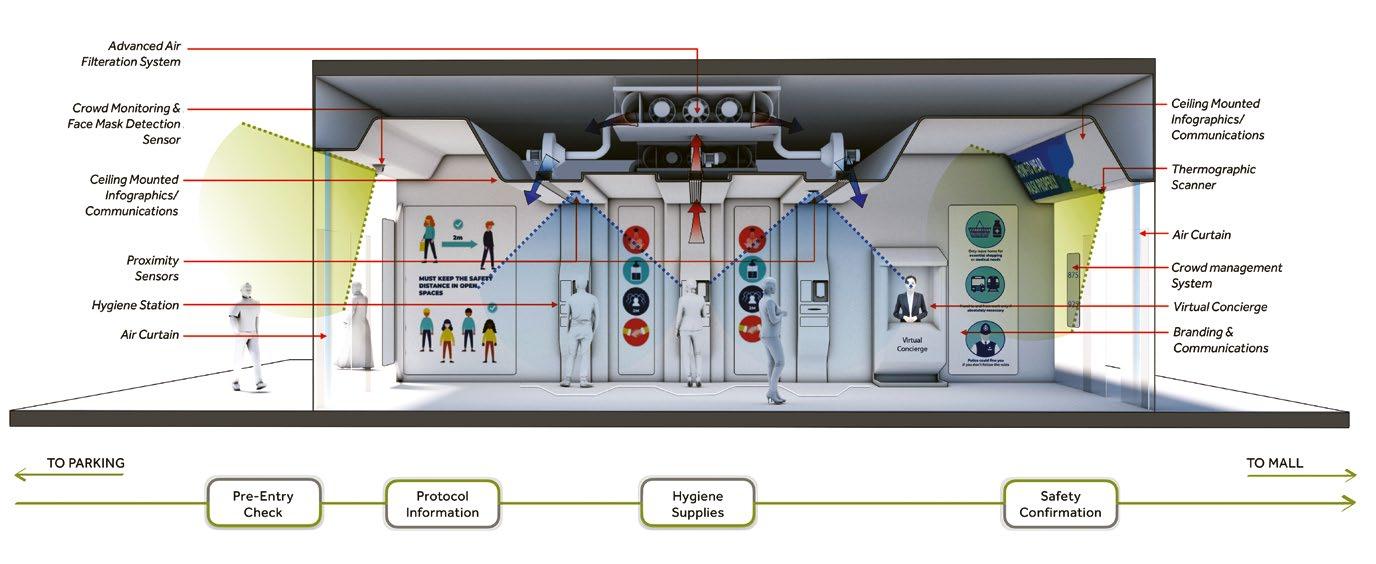
Accelerated Development in

REFAH Chain Stores was established in 1995 with the aim of providing and supplying basic goods to Iranian families and distributing them all over the country. “Refah” in Persian means “Welfare” and the name has been chosen to express the company’s vision.
The main mission has always been to provide the highest quality goods and necessities needed by the Iranian people at the lowest price. Due to the high diversity in tastes and needs of customers, the company’s main focus has been on supplying goods while maintaining inventory and sustainability of the number of products at all levels of sales. As a retailer, it has been successful in providing reasonable pricing and real discounts which are important principles, according to the code of ethics, and all the rules are formulated and implemented accordingly.
The company’s distribution and delivery structures have been formed in such a way that the goods can be accessed and delivered to the farthest regions of the country in the shortest period of time. In this regard efforts have been made to prevent false pricing of consumer goods by eliminating intermediaries and by establishing numerous stores in all cities, to prevent the impact of transportation costs on commodity prices. Customer orientation has been fully and comprehensively established.
Despite the current difficult economic conditions, Refah as a private enterprise with a long history in Iran plays a key
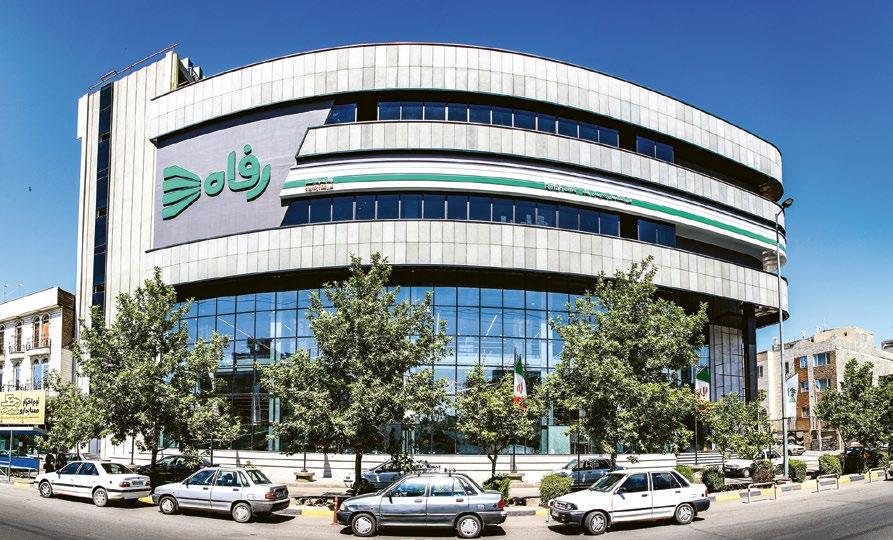
Shahrokh Keshavarz Public Relations & International Affairs Director, Refah Chain Stores Co
role by launching new branches across the country, aiding economic prosperity and increasing people's purchasing power, expanding services in low-income areas and creating jobs by hiring local specialists.
During the COVID-19 pandemic, where all economic structures and rules of the world were overshadowed and the world economy was shaken, Iran was also affected by the global crisis in terms of social and economic consequences. There has been a decline in job opportunities, alongside economic difficulties and social problems. When most large companies are challenged and are trying to return to the days before the pandemic, Refah has fortunately been able to increase the number of its stores with a target of 1,000 stores by the end of the year. The actions taken during these sensitive times will last forever in the history of the retail industry.
All the efforts made by Refah’s managers at every level has been to increase the welfare and happiness of all Iranians. Refah is continuously providing people with the best service and price while creating sustainable employment during the COVID-19 pandemic.
About REFAH
Stores:
830+
Employees:
10,000+
Products:
Suppliers:
Total Sales Area:
Customers:
25,000+ 3,500+ 500,000m² 14 Million People
Refah Store Formats: 1. Franchise 2. Express 3. Extra 4. Hyper 5. Mega Hyper
Collaborate to Accelerate “C to A” the Concept of the New Normal
2020 is a year that will always be remembered in history. The changes brought a new perspective on the way we will and can live.
Hertz, JC Penny, and 112 other companies (in America per Bloomberg) fell victim.
We saw winners as well as they would have never imagined Zoom, Netflix, Online retailers, Groceries have experienced multiple fold growth.
Boohoo states that the tops sales increased as the zoom meetings increased.
Few garment manufacturers stopped their regular production and started producing Face masks back in December 2019.
I am a strong advocate of our Malls as one of the fittest setups to face the crisis of this nature and the now “new normal”.
Malls already have a community of retailers, manufacturers, distributors under one roof – they all have to collaborate and develop the “ant ball” strategy to keep afloat and move in the right direction, just hold tight and not let anyone go down.
If we collaborate and make one strong digital marketing strategy and offer discounts in collaboration i.e. buying a trainer from the sports store will get you a hefty discount at the bookstore or buying a Recipe book at the book store will get you discounts at the utensils store, free meals, hotel stays, raffle draws, etc., then what we will essentially be doing here is making the customers visit all the stores and instigate their purchasing power.
Saad Athar, FCMA, CGMA
Finance Director & Strategist, Pulp Consultants Ltd.

Imagine if Hertz would have collaborated with hospitals, field services, government organizations and offered their fleet worldwide at the maximum possible discount on the vehicles which have already returned investment. This would have instigated the purchasing power of many.
What we have to do is:
Combined Marketing and promotions budget of all retailers.
Strong Marketing team which can be formed with the collaboration of retailers.
Convenient customer service and delivery service for online shoppers and visitors
Increased levels of stock reduced level of display, replaced by virtual catalogs in the stores (Argos Style)
Common cashiers around the mall as well as single checkout for multiple brands for online shoppers.
This is just to give a thought to get the idea rolling, I will be elaborating on this idea and its implementation in my future writings – no doubt a lot of effort and experimenting will be needed, “the proof is in the pudding” ….
For more info about Saad, visit, http://linkedin.com/in/saadathar-acma-505101a
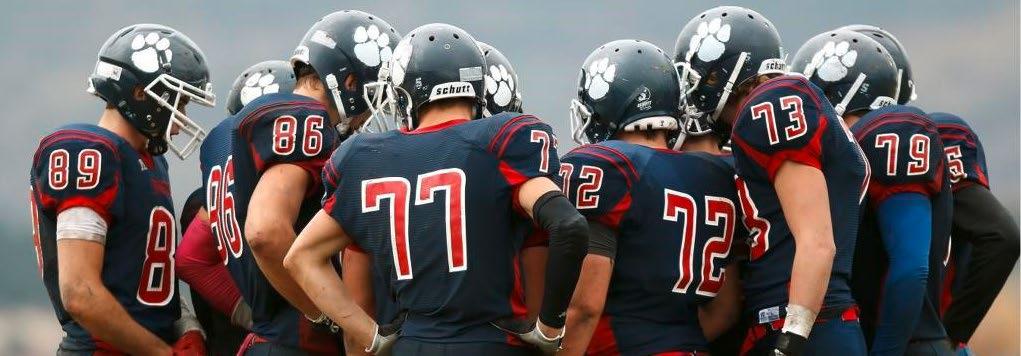
The Impact of Social Commerce on Retail
Increased digitalization and social media uptake have inspired retailers to develop new, innovative advertising methods to acquire new customers. High smartphone penetration rates in the GCC paired with a tech-savvy and growing younger generation, has built the foundations to obtain a wider reach and increased visibility to retail's prime consumers. Retailers will continue to move away from traditional advertising channels towards mobilecommerce and social media platforms, offering a more seamless and portable shopping experience.
The concept of social commerce will continue gaining traction, interconnecting the worlds of e-commerce and social media. Social commerce is a broad term that encompasses any shopping activity done in a collaborative online environment. This is most obviously seen in the form of shopping integrated into social media through in-app features, such as direct links guiding users from a photo post directly to the retail website.
Many pureplay online retail stores are now moving towards opening physical stores for alternative customer experience. Physical stores and in-store shopping provide customers with the chance to touch and try their products before purchasing, giving the customer a sense of instant gratification from their purchases – an element many times missing from the digitalnative retailers.
The extent of this physical rollout differs across retailers. Some innovative retailers, such as Bonobos, are opening small showrooms with zero inventory, only offering samples of items for customers to see and feel before placing an order for their item. Other retailers, such as Everlane, have developed a strategy for expansion through physical stores
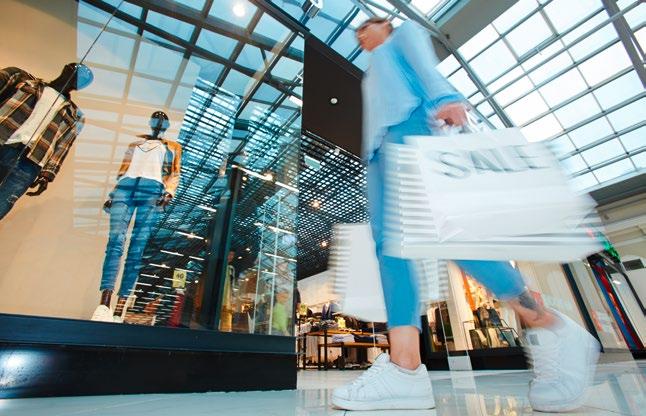

Gabriella De La Torre Director Consulting, CBRE
Johannes Distler Partner, Roland Berger
(today operating six stores), driven by the belief that "basically no online-only companies are profitable" (Michael Preysman, Everlane CEO).
Social commerce has the potential to vastly benefit businesses and brands, by widening the reach of merchants and social sellers to a greater customer base and increasing access to previously hard-to-reach customers. The relatively low-cost nature of this advertising model also increases the exposure of smaller or niche businesses that were unable to compete in the traditional advertising space.
Influencers in the region have been key drivers for social commerce increasing exposure of many local brands fighting for increased visibility through advertising deals and sponsorships. Social media as an advertising platform is extremely successful in the Middle East with widespread reach from high connectivity rates and social media penetration in the region. For example, Saudi Arabia currently boasts 130% mobile phone subscriptions, 99% smartphone usage and the 4th highest number of Twitter users worldwide (14.35 million users, equivalent to approximately 45% of the population). The GCC has huge potential to build brands using social media as a primary advertising platform. One example is Huda Kattan, an IraqiAmerican businesswoman and founder of Huda Beauty, a cosmetics line founded in 2013 which is now worth US$ 1.2 billion. Kattan's success can be attributed to her strong positioning on social media platforms such as YouTube and Instagram, and the use of many other influencers to help market her brand.
Today, there are hundreds, if not thousands, of social media influencers in the Middle East. However, the impact of advertising through social media influencers is difficult to measure, leaving the ultimate return of these advertising dollars unclear. Ultimately, we see great potential for social media marketing in the region; nevertheless, its success can only truly be realized through the implementation of clear KPIs and quantitative impact measurement.
One-on-One with...
Full Name: Hussain Kareem Jamal, CSM, CLS
Short Name: Hussain
Nationality:
Indian
Job Title:
Company:
Head, Mall Operations Tamani Global Development and Investment LLC
Hobbies:
Education:
Reading, Fishing, Motor Sports Bachelor's Degree in Corporate Studies
Life’s Quote: Always do more than
what is expected of you.
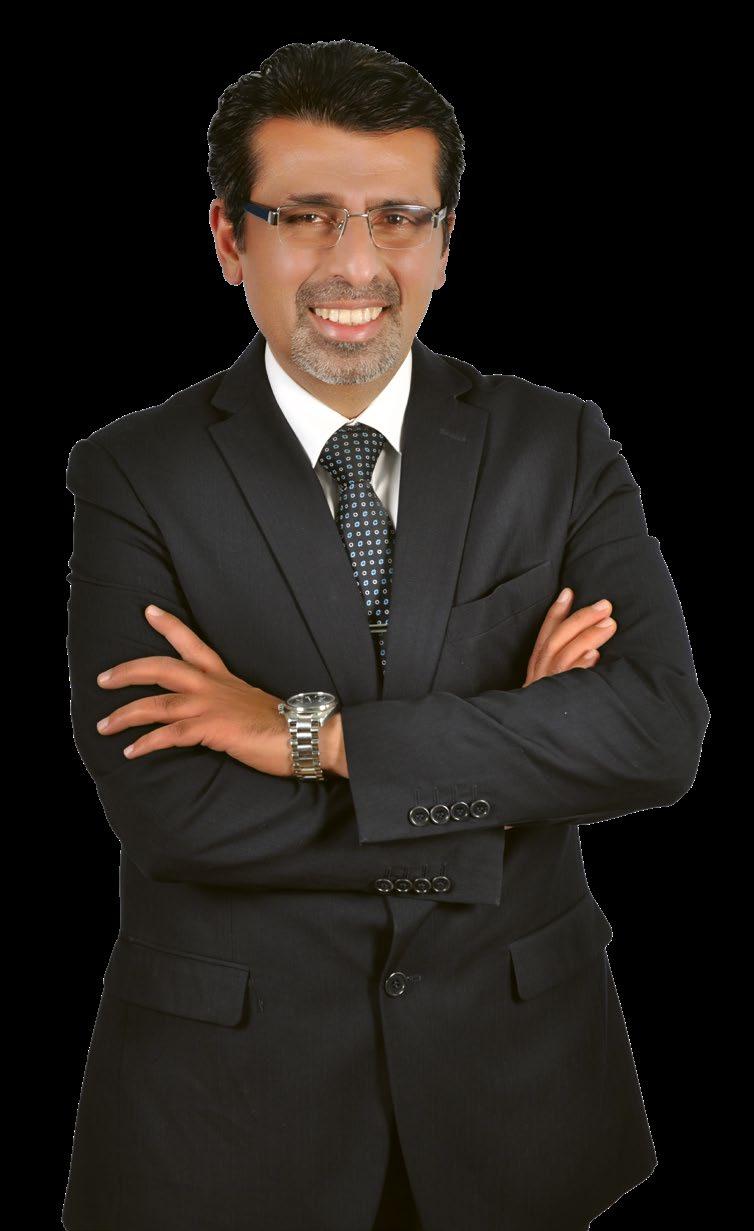
We see that you have moved to Muscat, Sultanate of Oman, what is your current role? After almost 18 years in the UAE, I took up an exciting opportunity to Head Mall Operations at Mall of Muscat. Currently, it is the largest trading shopping mall in the Sultanate of Oman and is home to the only public aquarium in the country. As the head of Mall Operations, I am responsible to ensure that the mall operates uninterrupted at optimum performance levels while maintaining world-class standards.
What do you consider as the most challenging aspect of your role?
The mall has many unique components such as one of the largest aquariums in the region, 2,600 sqm+ night sky, stretch-ceiling installation, Ethylene Tetra Flouro Ethylene (ETFE) Roof System, Premium Finishes, and Furniture, Fixtures, and Equipment (FFE), a huge food court with 1,100+ seating capacity and the list goes on… the challenge is to maintain the synergy and harmony between the various moving parts of this big machine to ensure that the customer has an unparalleled shopping & leisure experience in the mall.
We know that you have been initially associated with the retail apparel industry, what made you change tracks and what helped you in the transition?
Yes indeed, I was associated with Giordano Fashions under the astute leadership of Mr. Ishwar Chugani, a true legend in the world of regional retail. However, malls always fascinated me so I decided to get in touch with MECS+R to help me in the transition. The support that I received was phenomenal, I was introduced to the various self-learning modules, certification courses, networking events and conferences which helped me develop and grow in my new career.

What is your opinion about MECS+R and its value to the Retail Industry in the Middle East?
In my opinion, MECS+R is a very resourceful platform, to facilitate the sharing of knowledge and best practices from all over the world. More recently, MECS+R's almost instant transformation from a physical to a digital platform was truly commendable. I have always found David and his team very approachable, genuinely helpful and always ready to go the extra mile to assist and guide when needed.
What is your advice to aspiring retail professionals looking to thrive and succeed within the Shopping Centre Industry?
My simple advice to aspiring professionals is to never stop learning and upskilling. Today, thanks to the COVID-19 transformation of the education industry, we have greater access to learning resources than ever before which can be easily accessed at an affordable cost, so take time out, learn, re-educate yourself and take control of your own future.
What is your personal mantra for success which you would like to share with us?
Always do more than what is expected of you, by doing this, you will certainly see a positive change in your life and boost your self-confidence. Also, I am a strong believer in destiny and good luck, but as the saying goes “Luck Follows Hard Work”, so work hard and don’t worry… luck will find you.
